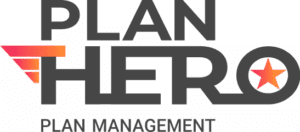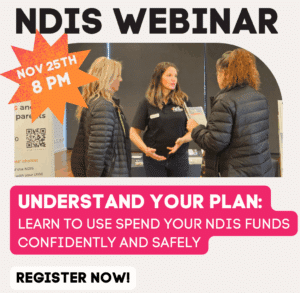Embracing your child’s creativity is the key to unlocking various benefits that are essential for a child’s development. As children explore their creative abilities they learn to embrace challenges, thinking outside the box and discover unique strength and talents that can lay the foundation for a lifetime of learning and self-discovery
We are often asked by parents: What NDIS supports are there for my child who wants to explore their creative side, but doesn’t respond to ‘traditional therapies’ often funded by the NDIS, such as physiotherapy, OT and psychology?
In this resource we help you understand how you can use use your child’s NDIS funding to enhance their creativity and work towards those super important goals that set them up for success in the future:
Explore the topics below:
- Why does creativity matter in children?
- Why ‘traditional therapies’ might not work
- What NDIS supports can help my child enhance their creativity?
- What are the benefits and NDIS requirements of these supports?
- Our top tips to get creative with your funding and how to get funding for creative supports
- Stimulate imagination, problem-solving skills, emotional expression, and resilience.
- Form the basis for lifelong learning and holistic development.
- Enhance communication skills and create an opportunity for social interaction
- Reduce stress and provide a calming environment to explore
- Build confidence and allow for personal growth
- Develop fine and gross motor skills
- Repetitive, boring, or unrelated to their child’s interests
- Lack of creativity and flexibility
- Disconnect from real-life interests
- Enhance their child’s fear of failure, feeling self-conscious and pressure
Ultimately, this can create a lot of stress on families, impact your child’s quality of life and this can cause a child to become disengaged, resistant to therapies and increase the pressure they feel when attending therapy supports.
Parents face enough pressure trying to make these decisions and feel the pressure to know ‘what is best’, so just understand that these are not your only options when it comes to supports available to your child.
- Art therapy
- Music therapy
- Equine therapy
- Play therpay
- Social skills group
- Disability specific camps, activities and groups
- Art Therapy
- Benefits: Non-verbal expression, sensory stimulation, emotional regulation, self-confidence, and social connection.
- NDIS Requirements: Must be delivered by a qualified art therapists
- Funding category: Improved Daily Living
- Music Therapy
- Benefits: Enhanced communication, sensory stimulation, stress reduction, and inclusion
- NDIS Requirements: Must be delivered by a qualified music therapists
- Funding category: Improved Daily Living
- Equine Therapy
- Benefits: Enhanced physical, sensory, emotional, and psychological well-being
- NDIS Requirements: Must be delivered by a qualified therapist trained in equine technique, such as a psychologist
- Funding category: Improved Daily Living
- Disability-Specific Camps & Social groups
- Benefits: Talent exploration, skill development, autonomy, and confidence building.
- NDIS Requirements: Supports and outcomes must align with your NDIS goals, be disability specific, and reasonable and necessary
- Funding category: CORE – Assistance with Social and Community Participation OR Increased Social and Community Participation
To find out more about the specific NDIS rates that providers can charge you for each of these supports, simply search the line items/codes using our easy NDIS price guide
- Educate yourself – know what you can ask for. Check out our NDIS toolkit and download our ‘unpack your plan resource‘ to explore each of the budget categories
- Collaborate – ASK your child what they want! They are more likely to engage in activities they are interested with
- Put together a Carer’s impact statement
- Gather EVIDENCE – contact therapists or groups you are interested in and gather quotes and information on what goals they can work towards. Get evidence from current supports about what areas your child needs support with, incl. how creative options can help them work towards these goals
What are some keywords you can use to relate your goals to these needs?
- Enhance communication
- Build autonomy & independence
- Social & community engagement
- Skill development
- Manage behaviours & emotions
What outcomes and goals might relate to these relate supports?
- Try new things and meet new people
- Building confidence and self-esteem by exploring their own hobbies
- Building skills that will improve their fine or gross motor skills
- Manage behaviours and prevent meltdowns
- Be more engaged in social & community activities to build their confidence and autonomy
For more tips and resources on writing GREAT NDIS GOALS – Go to our handy resource: Setting NDIS goals for your planning meeting
- Wait until your plan reassessment and discuss this goal and funding at that stage
- Request an EARLIER plan review with your LAC/NDIS representative. You will need gather reports from your current therapists and explain why this additional funding is required or if there has been a change in circumstance
Who do I contact to discuss this funding?
It is best to call your NDIS representative or LAC to discuss your options if you wish to have additional funding included specifically for these supports. In most cases, you may be required to submit additional supporting evidence, or justification as to why your current funding is insufficient or doesn’t meet your goals.

